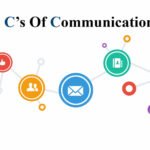Mastering the Art of Interpersonal Communication: Essential Skills for Effective Connections

- The Basics of Interpersonal Communication
- Techniques for Enhancing Interpersonal Communication
- How to Improve Your Interpersonal Skills
- The Art of Communication
- Interpersonal Communication in Business
- Mastering the Art of Effective Communication
- Communication in the Legal Profession
- Active Listening
In today's interconnected world, effective communication and the ability to connect with others have become more important than ever.
Whether it's in personal relationships, professional settings, or even online interactions, mastering the art of communication is essential for making meaningful connections.
In this article, we delve into the essential skills for learning how to communicate effectively with others.
From understanding the basics of interpersonal communication to techniques for enhancing communication skills, we explore the different aspects of this crucial skill set.
So, if you're ready to unlock the secrets of successful communication and make lasting connections, keep reading.
The Basics of Interpersonal Communication
Developing meaningful connections with others starts with mastering the fundamentals of human interaction.
This entails exchanging thoughts, ideas, and emotions, which allows for deeper comprehension and rapport.
To be successful in this endeavor, it is essential to know how to effectively express yourself and attentively hear what others have to say.
By honing these basic skills, you can improve both your personal and professional relationships and navigate diverse social scenarios with ease.
One indispensable aspect of successful communication is active listening.
This involves fully paying attention to the speaker, comprehending their viewpoint, and responding appropriately. Showing genuine interest in the conversation and actively participating in it creates a hospitable and open atmosphere for effective dialogue.
Additionally, active listening lets you acquire invaluable information and insights, aiding you in providing thoughtful and sympathetic responses.
In today's quick-paced digital world, the importance of proficient interpersonal communication sometimes gets forgotten. Nevertheless, it is important to remember that true conversation goes beyond mere words.
Non-verbal cues, such as body language and facial expressions, are a significant part of conveying sentiments and understanding others.
By recognizing these non-verbal signs and being aware of their influence, you can further improve your ability to bond with others on a more profound level.
The basics of interpersonal communication include both verbal and non-verbal communication, allowing for a more comprehensive and holistic understanding of others.
Interpersonal communication is an ever-evolving process requiring both parties to actively join in and engage. It necessitates not only speaking and listening but also interpreting and understanding messages.
It is essential to comprehend that effective communication is a two-way street, and both individuals must be involved. By focusing on the basics of interpersonal communication, such as active listening and non-verbal cues, you can acquire the fundamental skills needed to communicate effectively with others.
Whether in personal or professional contexts, having a good grasp on the fundamentals of interpersonal communication is a priceless skill that will enable you to establish strong relationships and create meaningful connections.
Techniques for Enhancing Interpersonal Communication
The ability to interact effectively with others can be honed into an art form. Practicing active hearing is an invaluable technique for deepening your relationship with the speaker.
Fully immersing yourself in the conversation, being aware of non-verbal clues, and inquiring for more information demonstrate your interest and respect.
Enhancing your active listening skills can help you create more meaningful connections.
Non-verbal communication is a powerful tool for improving your capacity to understand and connect with others.
Observing facial expressions, body language, and vocal intonation can provide an abundance of information.
Being cognizant of your non-verbal gestures as well as those of the speaker, such as maintaining eye contact, using open body language, and mirroring movements, can help build trust and rapport. Mastering the art of non-verbal communication can help you create more powerful bonds.
Another important technique for strengthening interpersonal relationships is the practice of empathy. Empathy requires putting yourself in someone else's shoes and endeavoring to comprehend their perspective and emotions. Showing empathy can create a safe atmosphere that encourages honest dialogue.
This can be accomplished by actively hearing the person's feelings, validating their sentiments, and reacting with sensitivity. Practicing empathy can help you establish more profound connections with others.
How to Improve Your Interpersonal Skills
Enhancing your capacity to connect with others and building up your interpersonal skills are integral components of successful communication. Here, we will discuss the different techniques and strategies to help you sharpen these essential qualities. In particular, we will focus on how to better your interpersonal skills.
With a few simple steps, you can be on your way to having more engaging conversations, creating stronger bonds, and being more successful in both personal and professional contexts.
Let's take a look at the key steps you can take to better your interpersonal skills.
One of the fundamental steps to improving your interpersonal skills is to practice active listening. Listening is the basis of effective communication and by dedicating your full attention to the speaker and understanding their viewpoint, you can respond in a more meaningful manner.
In today's hurry-up digital world, it may be tempting to just give quick responses, but it is imperative to pause and listen to truly form genuine connections and foster effective communication.
So, if you want to work on your interpersonal skills, start with becoming a better listener.
Another essential element of honing your interpersonal skills is to master the art of conveying information clearly and accurately.
Communication is a two-way exchange, and being able to express your thoughts and ideas in a way that can be comprehended is essential.
This involves not only the choice of words but also paying attention to non-verbal cues such as body language and tone of voice.
By mastering the art of communication, you can accurately and effectively communicate your message and prevent any confusion.
Therefore, if you want to develop your interpersonal skills, focus on improving your communication abilities and become a master in the art of delivering information.
The Art of Communication
The power of verbal exchange is a multifaceted aptitude that goes past easy words and expressions. It envelops the capacity to convey importance adequately, associate with others on a more profound level, and engender knowledge and sympathy.
In the present quick-paced computerized age, where moment-informing and web-based media command our collaborations, perfecting the expertise of verbal exchange is more significant than at any other time in recent memory.
It requires being mindful of our words, tuning in to others energetically, and changing our correspondence style to various circumstances.
Effective communication is the way to structure solid connections, settle debates, and make associations that can keep going forever.
With regards to successful correspondence, it's not simply about what we state, but how we state it. Non-verbal cues, for example, non-verbal communication, outward appearances, and inflection assume a crucial job in conveying our message precisely.
Comprehending and utilizing these non-verbal signs can upgrade our capacity to convey successfully and guarantee that our planned message is conveyed as proposed.
Moreover, successful correspondence includes having the option to conform our language and style to various crowds and circumstances.
Regardless of whether we are talking with a partner, a customer, or a friend, having the option to tailor our correspondence to their prerequisites and inclinations is basic for engendering comprehension and building significant associations.
The craft of verbal exchange additionally includes dynamic tuning in – hearing and understanding what others are stating without judgment or interference.
Energetic tuning in requires giving our full consideration to the speaker, posing clearing up inquiries, and reflecting on their musings and feelings.
By rehearsing dynamic tuning in, we not only make the other individual feel heard and esteemed, but we additionally pick up a more profound comprehension of their point of view and can react in a more mindful and viable way.
Effective communication is a two-way road, and dynamic tuning in is an essential segment in making significant and beneficial discussions.
The expertise of verbal exchange is an interminable excursion that requires ceaseless practice and improvement. It isn't something that can be aced in the medium-term, but rather an expertise that we can consistently improve.
By being mindful of our words and non-verbal cues, tuning in to others energetically, and evolving our correspondence style to various circumstances, we can upgrade our capacity to
Interpersonal Communication in Business
Developing your capabilities in the realm of business is essential for your success. As an entrepreneur, you must interact with different stakeholders, such as clients, investors, and employees, to achieve your goals.
By honing your communication skills and mastering the art of dialogue, you can build trust, foster collaboration, and increase productivity. Whether you are delivering an impactful presentation or engaging in attentive listening during a meeting, sharpening your communication abilities is crucial.
A major element of business dialogue is understanding the requirements and desires of your audience. As a business owner, you must adjust your language to be suitable for different individuals.
By customizing your communication style to accommodate their preferences, you can construct strong relationships and effectively communicate your ideas.
Moreover, being a good listener in business dialogue is imperative.
Being an active listener enables you to comprehend the thoughts and feedback of your audience, allowing you to respond appropriately and make informed decisions.
By paying attention to the needs of others, you can form strong connections and foster a positive reputation in the world of business.
Furthermore, powerful communication in the business environment necessitates clarity and brevity. In a fast-paced environment, people value direct messaging that gets right to the point.
Utilizing distinct and succinct language helps avoid misunderstandings and confusion. Moreover, observing non-verbal indicators, such as body language and tone of voice, can reinforce the potency of your message. By matching your verbal and non-verbal communication, you can demonstrate sincerity, confidence, and professionalism.
In the competitive business landscape, polishing your communication abilities can give you an edge and provide access to new opportunities.
Mastering the Art of Effective Communication
Maximizing your abilities in the craft of successful dialogue is an ability that can dramatically augment your connections and relationships. In today's interconnected world, it is more essential than ever to be capable of expressing yourself accurately and precisely.
By refining your talking capabilities, you can make sure that your message is comprehended and received as meant. Whether you are connecting with colleagues, clients, or loved ones, the capability to productively transmit your thoughts and ideas is necessary.
By learning how to communicate effectively, you can form stronger associations and reach greater success in all areas of life.
A significant element of becoming a master of the art of effective communication is active hearing. Truly concentrating on others is the cornerstone of meaningful communication. By providing your whole concentration to the speaker and seeking to understand their point of view, you exhibit respect and form a space for frank dialogue.
Active listening permits you to totally comprehend the message being conveyed and respond thoughtfully and suitably. It also helps to cultivate empathy and comprehension, producing a positive and harmonious communication setting.
By actively hearing, you can create a connection and form trust with others, paving the way for effective and productive communication.
Another essential factor in mastering the art of effective communication is the capability to deliver information in a clear and precise way. Communication is a two-way street, and being able to articulate your thoughts and ideas effectively is just as critical as listening.
By using clear and succinct language, avoiding lingo or technical terms when unnecessary, and logically organizing your thoughts, you can guarantee that your message is comprehended by your audience.
Effective communication also involves adapting your communication style to suit the requirements and preferences of the individual or group you are communicating with. By being aware of your audience and modifying your delivery suitably, you can increase the chances of your message being received and understood as intended.
Communication in the Legal Profession
Legal professionals must understand the importance of effective verbal expression to excel in their field. The ability to persuasively articulate arguments, negotiate with opposing counsel, and clearly explain complex legal concepts is essential for success in the courtroom.
The speaker must be confident in their presentation, ensuring that their message is understood and resonates with the intended audience. Moreover, strong communication skills are essential for building trust and rapport with clients, as lawyers must be able to convey their expertise in an easily digestible way.
Without proficient verbal expression, a lawyer may struggle to effectively advocate for their client's interests, resulting in potential negative outcomes for their case.
Additionally, the ability to communicate effectively is important for collaboration within the legal profession. Lawyers often operate as part of a team, whether it be with colleagues at their firm or co-counsel on a case.
Through successful communication, team members can share information, delegate tasks, and ensure everyone is on the same page. This guarantees that all parties are working towards the same goal and contributing to the best possible outcome for the client.
Furthermore, effective communication is vital for networking and forming professional relationships within the legal community.
Lawyers must be able to express their knowledge and establish a connection with potential clients, associates, and other professionals to build a thriving legal practice.
All in all, verbal expression is an essential skill for any lawyer looking to prosper in the legal profession and achieve positive results for their clients.
Active Listening
Being an attentive listener is an essential component of successful communication.
Rather than simply hearing what the other person is saying, active listening involves actively engaging in the conversation and striving to understand the speaker's message.
This helps to build mutual respect and trust, setting the stage for meaningful dialogue. Moreover, it can ensure accuracy by allowing for clarification and avoiding misunderstandings.
Practicing active listening can significantly enhance your interpersonal relationships and communication skills.
An important part of active listening is providing visible indications that you are present and attentive. This can be done through eye contact, nodding, and using appropriate facial expressions to express empathy.
Additionally, paraphrasing or summarizing the speaker's words can demonstrate that you comprehend their message.
By actively participating in the discussion and demonstrating attentiveness, you create a safe and welcoming atmosphere for open communication.
It is also essential to be aware of your own biases and assumptions when actively listening. Rather than jumping to conclusions or passing judgment, take the time to truly understand the speaker's perspective. Avoid interrupting and try to suspend any preconceived notions.
By focusing on fully grasping the speaker's ideas and emotions before responding, you can communicate more effectively and cultivate better relationships.
So, let us strive to continuously improve our interpersonal skills and embrace the power of communication to build stronger relationships and achieve our goals.
Leave a Reply




Related Posts